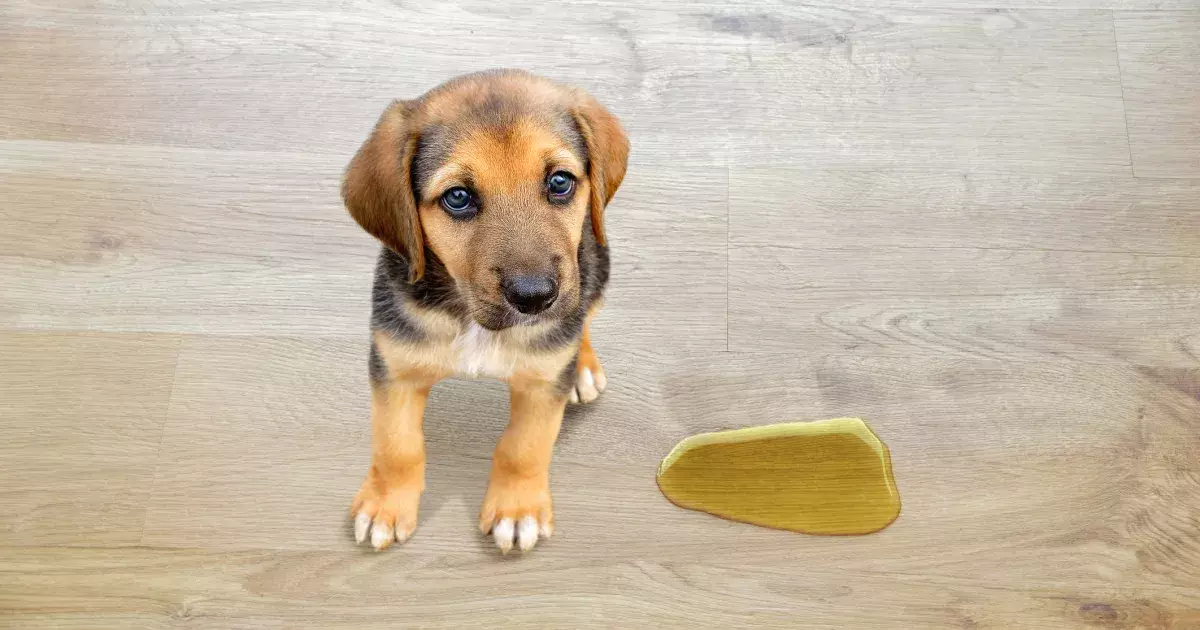As devoted dog owners, few experiences are more disheartening than witnessing an accident from our furry friends that seems entirely out of their control. Involuntary urination, which occurs outside your dog’s regular bathroom schedule, can stem from a variety of causes that merit immediate attention and understanding. There’s often a common misconception that this is merely a behavioral issue, when in fact, it may point to underlying health problems that require careful examination and compassionate intervention.
The medical realm is rich with potential culprits for inappropriate urination. One of the most significant offenders is a urinary tract infection (UTI), which can lead to an overwhelming urge to urinate and discomfort that directly contributes to involuntary accidents. If you observe symptoms like frequent, painful urination or possibly blood in the urine, it’s vital to act quickly by consulting with your veterinarian for diagnosis and treatment.
Hormonal fluctuations also play a crucial role in this concern. Spayed or neutered dogs might experience hormonal imbalances that weaken their bladder control, making involuntary urination more common. This weakening can occur as the dog ages, further complicating their ability to manage their bodily functions.
In addition to these medical conditions, mental health issues such as anxiety and excitement can provoke potty problems as well. Puppies or dogs who haven’t fully matured often lack bladder control in situations of heightened emotion. Addressing the psychological triggers for involuntary urination is just as vital as handling the physical aspects.
When faced with the challenge of involuntary urination, the necessity of veterinary guidance cannot be overstated. A thorough examination, complete with diagnostic tests, is fundamental to pinpointing health issues that may be impacting your dog. Not only can professionals provide clarity on whether UTIs or hormonal imbalances are the cause, but they may also recommend treatment options ranging from medication to lifestyle changes tailored to your dog’s specific needs.
Furthermore, early intervention is crucial. Addressing potential medical conditions before they escalate into more serious health issues can foster a more profound sense of well-being for your pet.
While any underlying medical concerns are being addressed, practical training techniques can help alleviate some of the urinary challenges your dog faces. Reinforcing potty training is essential, even for dogs who were once well-trained. Establishing a solid, consistent schedule for potty breaks will reinforce expected behaviors and guarantee that your dog has ample opportunities to relieve itself in appropriate areas.
For dogs that struggle with excitement or anxiety, implementing gradual exposure to stressors—such as doorbells or visitors—while employing positive reinforcement strategies can be beneficial. Training doesn’t only involve commands; it’s about creating a nurturing environment where your dog can learn to trust and feel safe, minimizing accidents borne out of fear or overstimulation.
Sometimes, practical solutions can make a world of difference. Products like belly bands or specially designed doggy diapers can serve as temporary management techniques until you can tackle the root cause of the issue. While these solutions don’t solve the problem itself, they can provide peace of mind for you as an owner and ensure a cleaner home environment.
Moreover, environmental management is crucial. Creating a home that accommodates the possibility of accidents—such as using washable puppy pads or investing in waterproof furniture covers—can help address the day-to-day stresses that come with managing involuntary urination.
To effectively handle involuntary urination, pet owners must embody patience and understanding. This means viewing your pet’s accidents not as failures but as opportunities to learn about their health and emotional well-being. Building a supportive environment, utilizing veterinary support, and applying practical training methods will lead to a holistic approach to their care.
Involuntary urination can indeed be a stressful experience, but with diligent care, empathy, and the right strategies, you can navigate this challenging issue. Your journey alongside your furry companion can deepen your connection and ultimately contribute to a happier and healthier life together.

